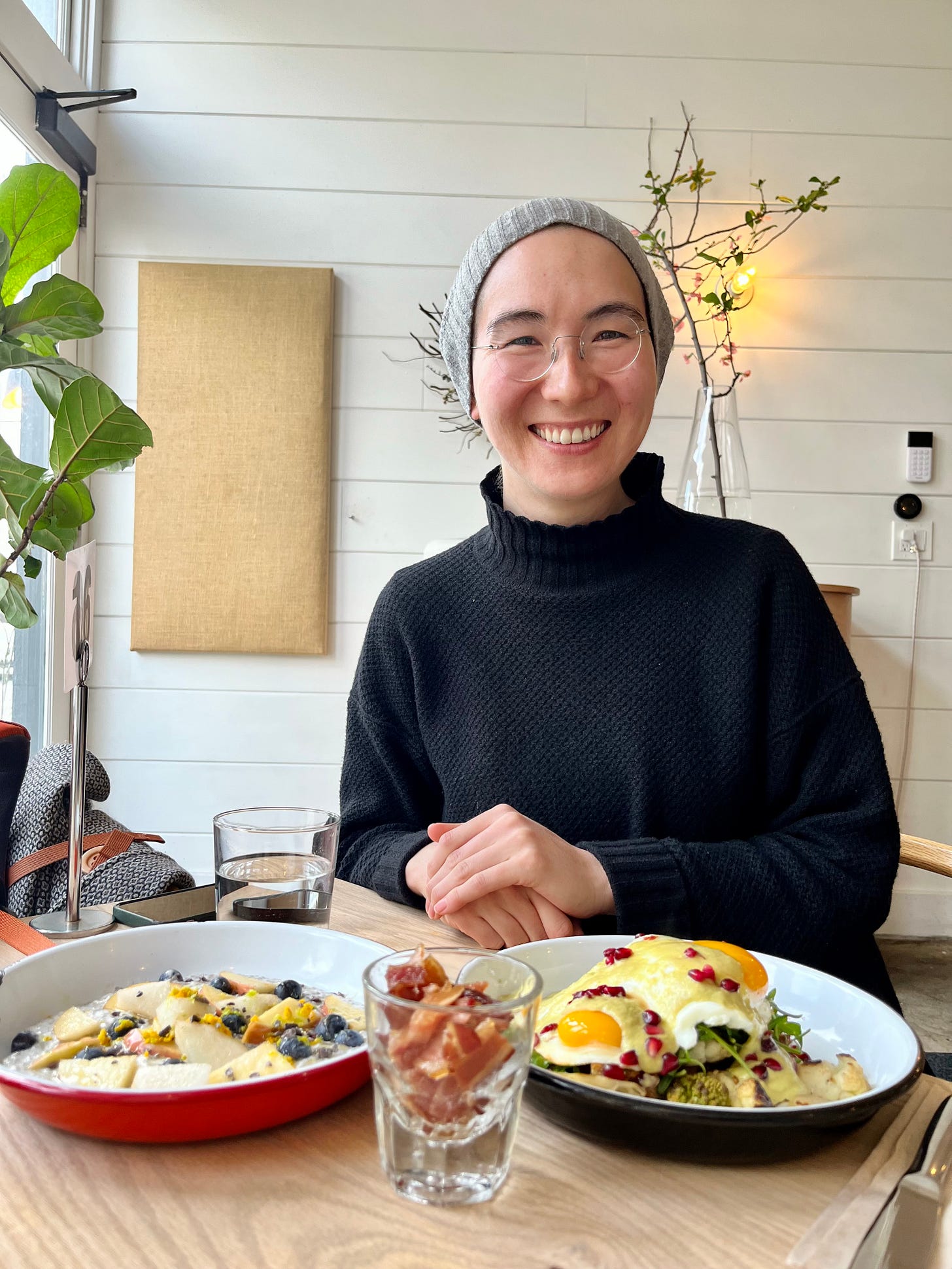On Asian American Buddhist Friendship
Reflections on May We Gather's 3-Year Memorial for Victims of Anti-Asian Violence in Antioch, CA and a Delightfully Sassy Car of Women Buddhist Priests (aka #PriusPosse)
Warmest aloha to my new subscribers! A lot of you have joined recently from a recommendation on the poet David Whyte's Substack. I am honored and happy to have you here. I hope you find something in this newsletter providing new perspective and an interesting glimpse into my world as a Zen priest boxing, throwing clay, and writing in the back of a valley in Hawaiʻi. Welcome. 🍍
Last week, I was honored to be flown out to the San Francisco Bay Area to participate in May We Gather, a national Buddhist pilgrimage for Asian American Buddhist ancestors, in particular Asian Americans lost to anti-Asian violence.
In Buddhist tradition, a memorial service is held 49 days, one year, and three years after someone has passed away. The first May We Gather event happened 49 days after the mass shootings at three spas in the Atlanta area that killed eight people, six of them Asian women. These women were targeted by a White man who blamed them for being "temptresses" who needed to be eliminated, and their deaths were part of the alarming rise in anti-Asian violence happening during and post-COVID.
Having the three year memorial in Antioch underscored how long standing Anti-Asian racism and the sexual objectification of Asian women is in America. In Antioch in 1876, six Asian women were also blamed for being sexual temptresses, and for spreading immorality and venereal disease to young White townsmen. This became the pretense under which Antioch's White residents drove out all of their Chinese neighbors and burned down their Chinatown. This was after years of denigrating and threatening the local Chinese community, including by passing "Sundown Laws" prohibiting them from being out after dark, which led Chinese residents to have to build underground tunnels between their homes and businesses.
May We Gather event organizers Duncan Williams, Funie Hsu, and Chenxing Han learned about Antioch when the city's officials made the first public apology by a US city to its original Chinese residents. At the May We Gather event last week, we were joined not only by family members of individuals killed by anti-Asian violence, Buddhist clergy, and community members but also by Antioch's Mayor Pro Temp and members of the City Council. The event they joined was at times solemn, but it also felt happy and warm, like one big family reunion.
Shortly after I arrived in the Bay Area, I picked up Victory Kaishin Matsui, Director of the Ancestral Heart Zen Temple in Millerton, New York, a Soto Zen monastery connected to the Brooklyn Zen Center. Beautifully, Kaishin had reached out to me after the first May We Gather event to share that, after seeing me speak as part of the livestreamed event, she had decided to ordain as a priest.
"The reason you and I are even friends," Kaishin later said to me when I interviewed her, "is that seeing that ceremony, and seeing you stand up there, was the first time I even saw an Asian American woman priest. And that gave me permission to become a priest myself."
Last week was the first time that, after many Zoom calls and text threads, Kaishin and I actually got to meet in person! It was wonderful and we shared a long drive to Antioch with another young Asian American Buddhist priest whom we found to be witty, funny, delightfully sassy, and equally into nerding out about Buddhist priesthood: Grace Song from the Won Institute in Philadelphia.
The stop and go rush hour traffic did little to dampen our enthusiasm to learn about each other's traditions. Can you get married? Are you allowed to work? What's your daily schedule like? Do you eat meat? We peppered each other with questions, taking turns explaining what it meant to each of us to be a Buddhist priest, and what it had been like to train deeply in Buddhism as young, modern women. It was so touching and full of sisterly joy that I'm tearing up a little now just remembering and writing about it.
And then, once we got to Antioch, we quickly adopted into my rented Toyota Prius Myokei Caine-Barrett, abbess of the Myoken-ji Nichiren Buddhist Temple in Houston, Texas whom I'd met at the Future of American Buddhism conference two years ago. The four of us laughed so much and so heartily while driving around the historic town of Antioch that I commented that we had the sassiest car of Buddhist priests you could imagine. We dubbed ourselves the Prius Posse. It was heaven.

Through the pilgrimage itself, including a procession from the El Campanil Theatre in downtown through the areas where the old Chinatown once stood, I noticed how happy everyone was to be together. We smiled and laughed, and it momentarily gave me pause. I wondered if maybe we weren't being solemn and serious enough for a memorial service.
But then, I remembered that the expressed intent of May We Gather in Antioch was to bring about healing. And what better sign of deep healing than happiness, laughter, and the sense of finding ourselves suddenly among family?

My deepest gratitude goes out to Duncan, Funie, Chenxing, the rest of the May We Gather team, and the donors that made this event possible, including the Kataly and Lenz Foundations. I hope we have many more such opportunities to build community and strength in our Buddhist traditions across the many sects and the vast distances we span.
And long live the #PriusPosse.





Great report. Love the photos! Wish I could’ve gone but I had another event to attend that weekend